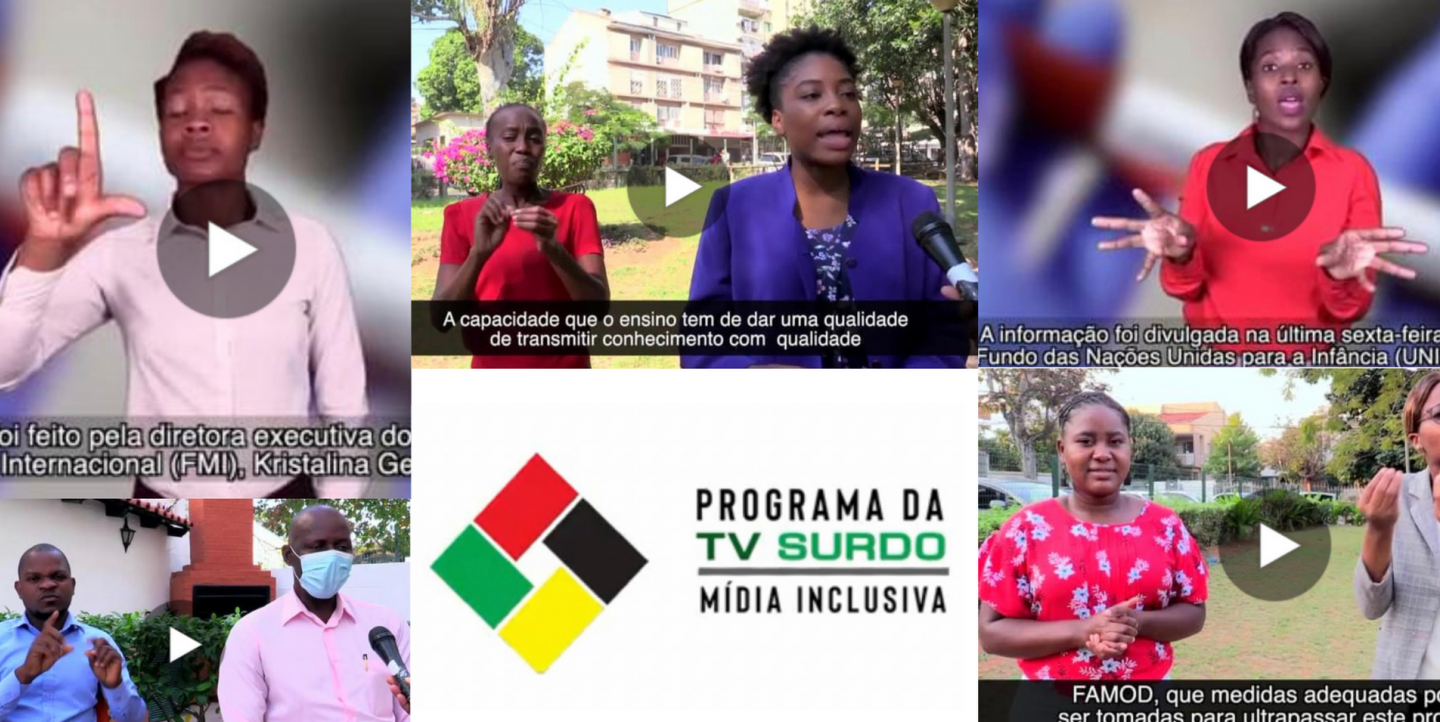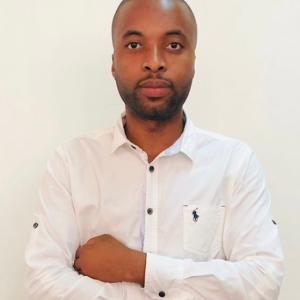The southeastern African country of Mozambique is home to 727,620 people living with disabilities, according to the latest census data from the National Institute of Statistics in 2017. Among them, more than 68,000 are deaf and over 58,000 are blind.
Access to information in Mozambique is secured by its constitution. There are enormous challenges, however, that hinder compliance with the law and as a result many are not able to properly access information, including those living with disabilities.
Just as access to information falls short, efforts to improve this reality are few and far between. There is hope on the way, however — a news initiative by the name of TV SURDO, born with a goal to deliver information to those who have historically been excluded from the media.
As the name suggests — “surdo” means “deaf” in Portuguese — TV SURDO is a content platform for people with disabilities. Founded in 2008, the outlet initially focused on deaf audiences, and has since expanded to produce content for visually impaired people, too.
International funding
TV SURDO’s content is available on YouTube, and the outlet offers syndicated content to three TV stations based in Mozambique’s capital of Maputo.
The outlet aired its first shows in 2015, according to parent organization Associação TV SURDO Manager Sérgio Albuquerque. It took another five years before it began syndicating its content for other TV stations.
"We struggled at the beginning. We had the idea that we wanted to put it into practice, but the team lacked both technical and material resources," Albuquerque said, recalling that the team didn't even have a camera when it started out. While he often sought out financial support so the team could begin working, the help always came too late.
TV SURDO eventually went live thanks to financial help it received from a USAID initiative designed to strengthen media. From that point on, the outlet has been able to stand on its own two feet. "There are many partners, domestic and international alike, that feel connected to the project and have decided to fund it," said Albuquerque.
Inclusive media in Mozambique
TV SURDO operates in a context where the vast majority of legacy TV outlets don't take into account the needs of people with disabilities. Most newscasts don't offer a sign language interpreter, for instance, and the TV channels that do only make it available for official announcements to the nation regarding COVID-19.
The outlet's content is delivered in a hybrid format: Portuguese-language audio, subtitles and sign language. This way, those who can't see can listen to the news, and those who can't hear follow along thanks to sign language.
TV SURDO is positively impacting the daily lives of people who face barriers to be informed, Albuquerque believes. "This is the first and only inclusive media project in our country,” he said. “We feel like we are part of people's lives by realizing we are able to deliver inclusive content to those who really need it."
Asked why they decided to provide content in this hybrid format despite originally intending to reach primarily deaf communities, Albuquerque explained that the team had come to realize that content with no audio would exclude blind audiences.
Engaging its audience
TV SURDO makes it a priority to provide its audience with relevant, engaging content, addressing issues such as health, education and wellness.
Running the outlet is a meticulous job and every team member knows what they can bring to the table. Journalist Abdul Remane, well-regarded in Mozambique for his efforts to promote a more inclusive media, understands this all too well. "It's a pleasure to be part of this team. I have a physical disability and have been through what many people experience because of their disabilities," he said.
Photo: screenshots of TV SURDO's YouTube channel.
This article was originally published by our Portuguese site. It was translated to English by Priscila Brito Marcelino, our IJNet Portuguese translator.


